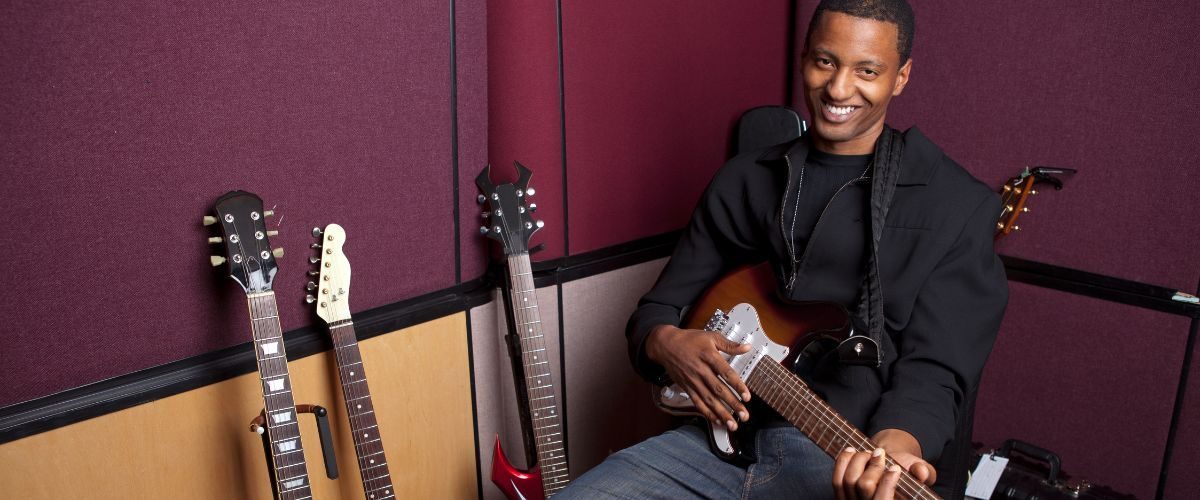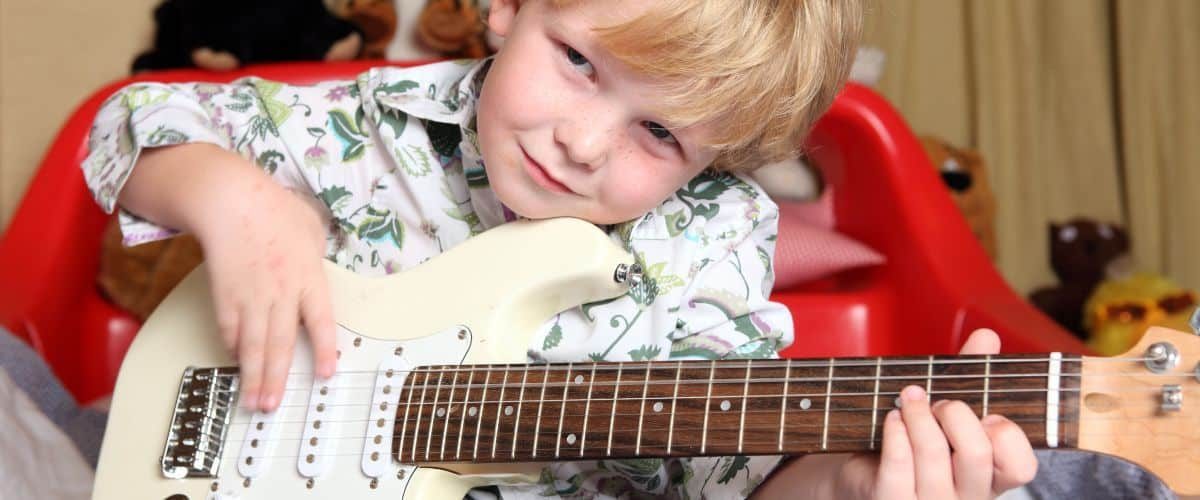
Who knew strumming away on an electric guitar could keep the blues at bay?
A recent study published by the Frontiers in Psychology reveals that regular guitar playing is associated with a 15% lower risk of depression and anxiety.
The research highlights how electric guitarists are striking not just chords but also a healthier mental state. With music as their shield, these rockers are shaking off the gloom and doom of everyday life.
Electric guitarists are hitting all the right notes regarding mental well-being. Discover how making music can help you stay happy and mentally strong.
The Link Between Electric Guitar Playing and Mental Health

Playing the electric guitar demands focus, creativity, and emotional expression. It’s not just about hitting the right notes; it’s a dance between the mind and the strings. This engagement can act as a cognitive workout, keeping the mind sharp and agile.
Furthermore, the joy and satisfaction derived from creating music offer a perfect escape from the daily grind. Music stimulates the brain’s reward centers, which, for a guitarist, often translates to a natural reduction in stress levels.
According to the study, guitarists have a notably lower rate of depression compared to non-musicians. Regular guitar playing keeps the blues at bay, with an impressive 15% lower risk.
Surveys indicate that many guitarists feel relaxed and content, tying their mental well-being to their hobby. This significant reduction in depressive symptoms suggests that guitar playing isn’t just a pastime; it’s a therapeutic tool.
Engaging with the guitar can provide structure and routine, both key elements in maintaining mental health. Even more interestingly, the social aspect of playing in bands or groups further amplifies these benefits.
The Study's Methodology and Findings

They analyzed the mental health of 1,500 participants, focusing on those who played electric guitars regularly. The participants were surveyed over two years.
Data showed a consistent trend: electric guitarists exhibited a 15% lower risk of depression symptoms compared to non-players. Researchers believe that the cognitive engagement and emotional expression facilitated by playing the guitar contribute to these positive mental health outcomes.
Participants reported feeling more relaxed and satisfied after playing the electric guitar. Many also described an improvement in their social interactions. Performing or even practicing was seen as a form of therapeutic escape.
Although the findings are promising, there are limitations to consider. The sample size of 1,500 may not fully represent the general population, and the study primarily focused on enthusiasts who play regularly.
The study also relied on self-reported data, which can be subject to biases and inaccuracies. People’s perceptions of their mental health can vary widely. Therefore, it’s essential to consider other objective measures in future research.
Another consideration is the potential for confounding variables. Participants who play the electric guitar might also engage in other activities that positively impact their mental health. Examining these factors in more detail could provide a clearer picture.
Factors Contributing to Guitarists' Mental Well-Being

Creativity plays a significant role in mental health. Guitarists channel their emotions through music, finding a unique way to express themselves. This act of creation provides relief and a push against feelings of sadness.
Composing or even improvising a melody taps into one’s inner thoughts. Playing favorite songs can be incredibly satisfying and offer a sense of accomplishment. Emotionally, it becomes a valuable outlet.
Moreover, learning new riffs and mastering techniques challenges the brain, keeping it active and engaged. Such activities not only hone skills but also promote mental resilience.
Incorporating Music into Mental Health Strategies

Incorporating music, particularly guitar playing, into mental health strategies could be a game-changer. Playing an electric guitar may provide an emotional outlet and stress relief. Music therapy programs might integrate guitar lessons to enhance their effectiveness.
Professional therapists could employ this finding to create personalized therapy plans. For instance, someone experiencing mild depression could benefit from learning to play. Engaging in music could also foster a sense of achievement.
Communities might set up music groups or workshops aimed particularly at mental health. These programs can encourage social interaction and provide additional social support. Schools and universities might also incorporate guitar playing into their mental health initiatives, offering students an enjoyable and therapeutic activity.
Electric Guitar: A Powerful Tool for Mental Well-being

Research by Frontiers in Psychology suggests that regular electric guitar playing is linked to a 15% lower risk of depression and anxiety.
This finding is welcome news for guitar enthusiasts and mental health advocates. Playing guitar provides an emotional outlet.
Why might this be?
Creativity Boost: Expressing oneself through music.
Stress Relief: Playing guitar reduces stress.
Physical Relaxation: Focusing on music helps relaxation.
These benefits aren’t exclusive to guitarists. Anyone can experience mental health gains through musical engagement.
So, next time you pick up an electric guitar, know it’s not just for the tunes. It’s a boost for your mental well-being too! Rock on, and stay cheerful!
ABOUT:
Robert Emery created Ted’s List during the lockdown of Covid-19. Aside from entertaining audiences worldwide, he tries to inspire the young musicians of tomorrow. Ted’s List can help enormously with this task, as all the writers are world-class, professional musicians. Ted’s List covers all instruments, from Electric Guitar to Violin and Clarinet. Each instrument has a set of dedicated help articles, giving instructional advice on how to play the instrument, and how to improve. There are also informative reviews based on specific instruments, to help the musician choose the best instrument for them.
MEDIA CONTACT INFORMATION:
All press enquiries go to:
Paul Smith – Head of Press/PR
info (at) teds-list.com


